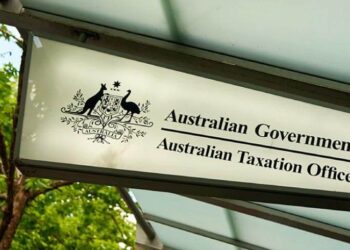Speaking in a recent webinar, Smarter SMSF chief executive Aaron Dunn explained that while a client may have previously been eligible for the early release of super for the 2019–20 financial year, it is vital they reassess their circumstances this financial year before applying for the 2020–21 early release payment.
At the time of the application, the individual’s working hours need to have changed compared with the period before COVID-19.
“This is a really important point to remember. The individual may have qualified at the end of April or early May. However, they may now be back at work and we now need to reassess how their circumstances look,” Mr Dunn explained.
“It may be the case that the individual does not qualify for a further payment from July through to the 24th of September.”
Mr Dunn reminded SMSF professionals and their clients that in order to be eligible for the early release of super payment, working hours need to have been reduced by at least 20 per cent from the period before COVID-19 impacted their work.
“So, if they were full-time previously and they had their hours reduced to nothing or perhaps 20 per cent, and now they’re back up to 50 per cent of their hours, there is still that 20 per cent reduction in hours from their original employment. On that basis, they would be eligible,” he said.
“However, if they reduced down from five days a week to, say, three days a week, but now they’re back up to four and half days a week, well then their eligibility may come into question.”
He also pointed out that where someone has lost a job in a previous industry, but they’ve been redeployed and have ended up with full employment again, then in those circumstances they would also be ineligible.
“I know this happened with Qantas, for example, where staff were stood down and some of them may have gotten a job in a supermarket or whatever the case may be. In those sorts of circumstances, they would actually be ineligible in those circumstances to access the amount because, again, because it’s based on working hours,” he noted.
The ATO has stressed the importance of individuals carefully checking the eligibility criteria before applying for the early release of super and keeping records that demonstrate their eligibility.
“If you apply and you’re not eligible at the time of submitting your application, we will take action,” the ATO stated.
“If you are unable to demonstrate your eligibility when we ask for evidence, we may revoke the determination issued for your application. This means the amount paid to you under COVID-19 early release of super will become assessable income and need to be included in your tax return and you will pay tax on the released amount.”
Mr Dunn also stressed the importance of documenting the decision so that their SMSF auditor can verify the steps taken to authorise the payment.
“We’re going to see a second wave in terms of further release payments, and I cannot stress enough that you need to document where these withdrawals have come out,” he said.



What am I missing here? I’ve re-read the ATO guidance. I’m interpreting it that as long as you’ve satisfied any of the conditions since 1 Jan you can take the $10k out in both FYs, regardless of subsequent changes to your circumstances. So if your hours reduced by 20% but have recovered since, it wouldn’t restrict taking this FY’s $10k?
I would tend to agree Rob
Interesting comments from Aaron. Agree, if relying on the minimum 20% reduction in working hours or turnover that is tested at the time of application, so someone may not qualify the second time around. However that requirement is only mentioned in the EM, on the myGov application the questions are much broader and the 20% reduction is only one of the possible eligibility criteria. Also interesting about the ‘redundancy’ eligibility criteria. It doesn’t say anything about being re-employed, only that you were made redundant, if the punter can honestly tick that box it’s maybe hard to see they have acted inappropriately.